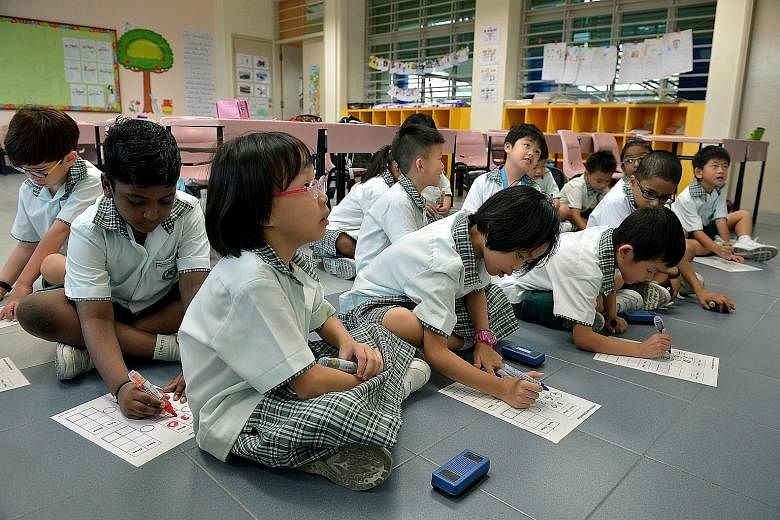Q I volunteered at a popular primary school so that my child would get priority for Primary 1 registration. Now that my daughter has secured a place, I intend to stop volunteering. But the principal asked if both my husband and I would like to join the parents' support group. I am in two minds about it. What would your advice be? Is there any value in it?
A My advice would be for you to get involved. Research overseas and locally has shown that the more parents are involved in their children's education, the better their children perform in school.
Studies have found that children whose parents are more involved enjoy school more and have better school attendance. They are also more emotionally and socially well adjusted and better able to handle stress.
Similarly, studies have shown that children with involved fathers are better academic achievers and have better numeracy and verbal skills.
A National Institute of Education (NIE) study of 150 high-income couples, done 14 years ago, found that it was not money, but parents' active engagement in their children's education, which made a difference in how well their children performed in school.
NIE lecturer Lana Khong Yiu Lan, who did the study, found that children whose parents did not leave everything to tutors, or who gave up their jobs for their offspring's sake, often did well in examinations.
Such parents were often seen in or around school, trying to stay informed about the latest developments in education from the principal and other parents. They also chatted with neighbours whose children have good grades, seeking their advice on tutors and what enrichment programmes their children should take.
Dr Khong chose to study high-income families because she wanted to see how well-educated parents in the top 20 per cent of earners allocated resources and time to their children's education.
Her aim was to find out whether the way in which they helped their children could be applied to the less well-off.
She concluded that the most important ingredients for good school performance are family involvement, sacrifice and awareness of educational matters.
So children of less well-off parents who put in the same effort should not feel deprived in any way.
Parents can use community libraries and subsidised tuition programmes run by community self-help groups to give their children that extra edge.
All parents should also spend quality and quantity time with their children to build good relationships with them. This will go a long way in helping their children.
There are many simple, everyday things that parents can do to become more engaged in their children's learning.
For a start, parents can ask their children about their day in school. This signals to the children that their parents are interested in their schooling and think that it is important.
Unfortunately, the only thing that some parents inquire about is their children's scores in school tests or exams.
At home, parents can provide an environment that encourages learning. Parents should also ensure that children have some quiet time, without the TV and other distractions, to complete their homework.
Parents are also advised to visit the school early in the year to meet the teachers and principal so that they can establish a mutual relationship of respect and trust. They should do so proactively rather than waiting till their children perform poorly or misbehave.
Education experts also suggest that parents make friends with other parents. The parental grapevine is very useful for sharing information and ideas.
And one of the best things that any parent can do is to become a volunteer in school.
A mother's or father's presence in school conveys an important message to the child about the value placed on schooling.
Being in school also gives parents a good understanding of what the school community is like, the specific context that their children operate in every day, and the challenges that teachers face.
But if being in school is not possible because of work or other commitments, parents can look for other ways to help from home, such as editing the school newsletter.
•E-mail your questions to stnewsdesk@sph.com.sg. Specify Ask Sandra as the subject and include your name, age, gender and contact details.


